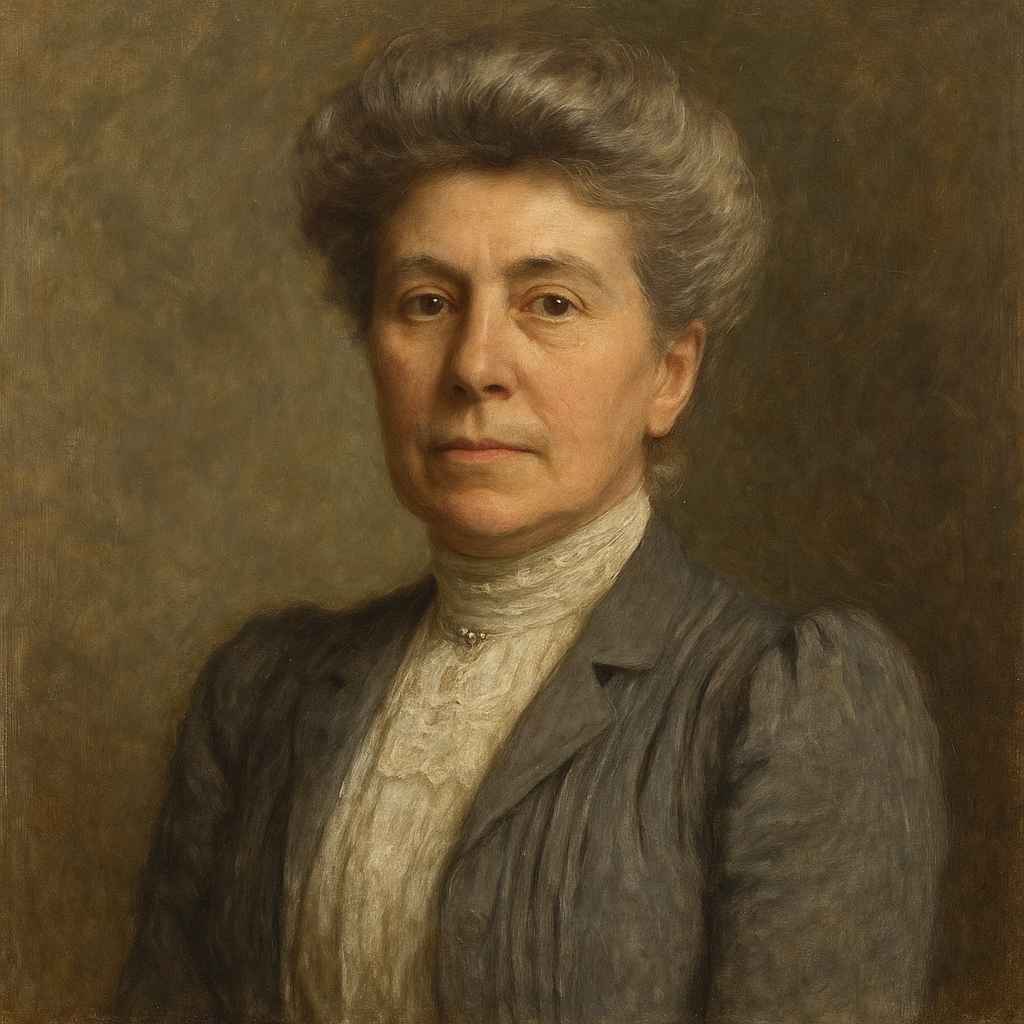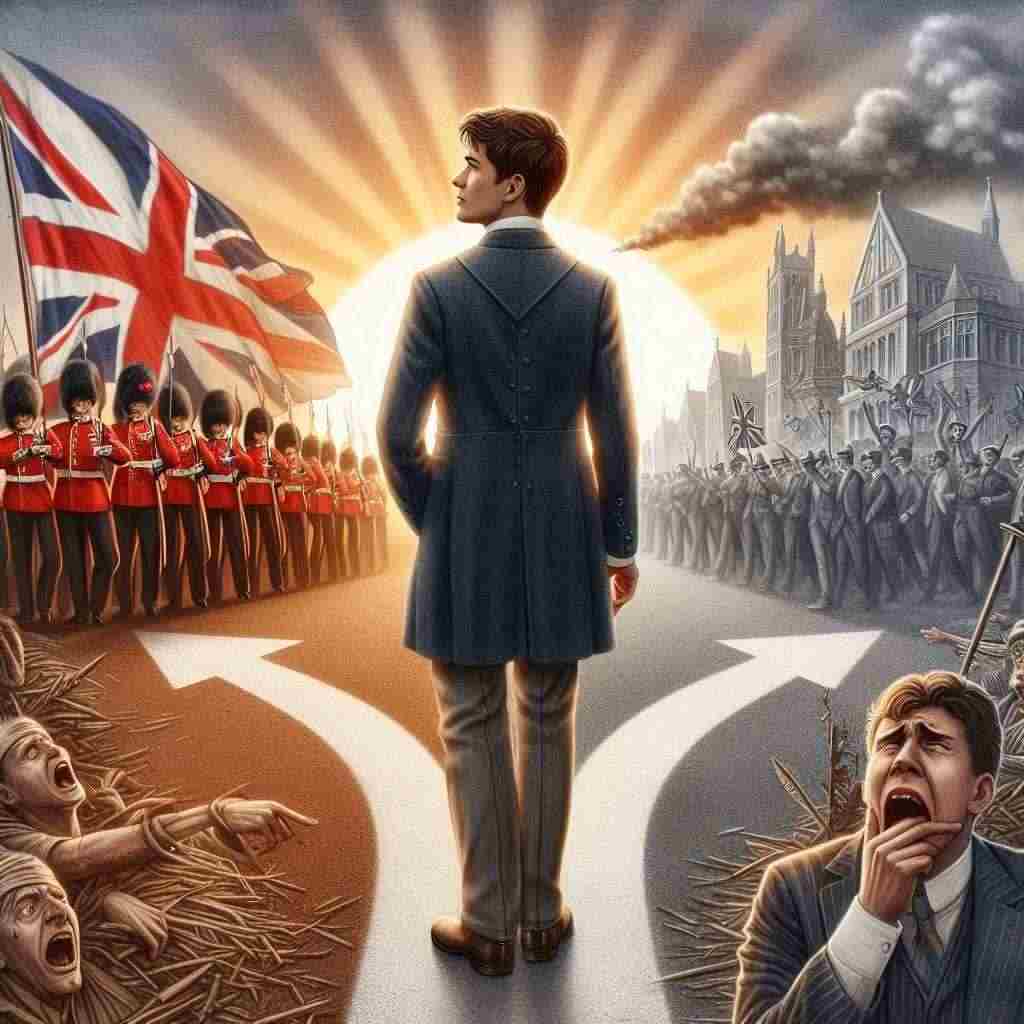1 Poems by Jessie Pope
1868 - 1941
Jessie Pope Biography
Jessie Pope, a figure who has stirred both admiration and controversy in the annals of English literature, was born on March 18, 1868, in Leicester, England. Her life and work spanned a tumultuous period in British history, encompassing the Victorian era, the Edwardian period, and the seismic shifts brought about by World War I.
Pope's early years were marked by a privileged upbringing, typical of the upper-middle-class milieu of late 19th century England. She received a robust education, unusual for women of her time, which laid the foundation for her future literary pursuits. Her formative years coincided with the twilight of the Victorian age, a period characterized by rapid industrialization, social change, and a burgeoning women's rights movement. These societal undercurrents would later influence her work, albeit in ways that modern critics find problematic.
As a young woman, Pope began to make her mark in the literary world. Her early works, primarily light verse and humorous poetry, appeared in popular publications such as Punch, The Daily Mail, and The Westminster Gazette. This period of her career was characterized by a whimsical, often satirical approach to everyday subjects. Her ability to capture the zeitgeist of Edwardian England in accessible, rhyming verse earned her a considerable following among the reading public.
However, it was the outbreak of World War I in 1914 that catapulted Pope to both fame and infamy. As the conflict engulfed Europe, Pope's poetry took on a markedly patriotic and pro-war stance. Her most famous (or infamous) works from this period include "The Call," "Who's for the Game?" and "The Lament of the Soldier's Wife." These poems, with their upbeat rhythms and simplistic rhyme schemes, were designed to boost morale and encourage enlistment among young British men.
Pope's war poetry was characterized by its unabashed jingoism and glorification of combat. She portrayed war as a grand adventure, a game in which brave young men could prove their mettle. This approach stood in stark contrast to the grim realities of trench warfare and the mounting casualties on the Western Front. Her poem "Who's for the Game?" with its opening lines "Who's for the game, the biggest that's played, / The red crashing game of a fight?" exemplifies this romanticized view of conflict.
At the time, Pope's work was immensely popular and widely disseminated. Her poems appeared in newspapers, were read aloud at recruitment rallies, and even found their way into school textbooks. The British government, recognizing the propagandistic value of her work, actively promoted her poetry as part of the war effort.
However, Pope's reputation began to suffer even before the war's end. As the true horrors of the conflict became apparent, her cheerful, patriotic verse increasingly rang hollow. Soldiers returning from the front lines found her portrayal of war not just inaccurate but offensive. This sentiment was perhaps most famously expressed by the war poet Wilfred Owen, who initially dedicated his poem "Dulce et Decorum Est" to Pope, though he later removed the dedication. Owen's brutal, realistic depiction of gas warfare was a direct rebuke to Pope's sanitized version of combat.
In the post-war years, Pope's literary star waned considerably. The mood of the nation had shifted, and her style of patriotic verse fell out of favor. She continued to write, turning her attention to children's literature and light fiction, but never regained the prominence she had enjoyed during the war years.
Despite her decline in popularity, Pope remained active in literary circles throughout the 1920s and 1930s. She published several novels and collections of short stories, though these works failed to capture the public imagination as her wartime poetry had done. Her later writing showed a more nuanced understanding of human nature, perhaps reflecting her own maturation and the changed social landscape of interwar Britain.
Pope's personal life was relatively private, and she never married. She lived most of her adult life in London, where she was part of a vibrant literary scene. While not as bohemian as some of her contemporaries, she maintained friendships with several notable figures in the arts and letters of her day.
Jessie Pope died on December 14, 1941, in Devon, England, at the age of 73. Her passing went largely unnoticed in a nation once again embroiled in global conflict. In the decades following her death, Pope's reputation continued to suffer. Her war poetry, once so popular, came to be seen as emblematic of the misguided patriotism that had sent a generation of young men to their deaths.
However, in recent years, there has been a renewed scholarly interest in Pope's work. While few would argue for the literary merits of her most jingoistic verses, some critics have begun to reassess her oeuvre in its entirety. They argue that focusing solely on her war poetry does a disservice to a writer who had a long and varied career. Her early humorous verse and later fiction, they contend, deserve more attention than they have received.
Moreover, some feminist scholars have attempted to situate Pope's work within the context of women's writing during the First World War. They argue that her poetry, problematic though it may be, represents an important female voice in what was predominantly a male literary landscape.
Today, Jessie Pope remains a controversial figure in English literature. Her work is still included in many anthologies of World War I poetry, often as a counterpoint to the more critically acclaimed soldier-poets like Owen and Siegfried Sassoon. While she may never be rehabilitated as a major poetic talent, her life and work continue to provoke discussion about the role of literature in times of national crisis, the ethics of war propaganda, and the complexities of patriotism.
In the final analysis, Jessie Pope's legacy is a complex one. Her poetry serves as a reminder of the power of words to shape public opinion, for better or worse. Her rise and fall mirror the changing attitudes of a nation before, during, and after a cataclysmic conflict. As such, she remains a figure of enduring interest to historians, literary scholars, and anyone seeking to understand the cultural dynamics of early 20th century Britain.
This text was generated by AI and is for reference only. Learn more
Username Information
No username is open
Everything is free to use, but donations are always appreciated.
Quick Links
© 2024-2025 R.I.Chalmers (V2Melody).

All music on this site by R.I.Chalmers (V2Melody) is licensed under a Creative Commons Attribution-NonCommercial 4.0 International License.
Attribution Requirement:
When using this music, you must give appropriate credit by including the following statement (or equivalent) wherever the music is used or credited:
"Music by R.I.Chalmers (V2Melody) – https://v2melody.com"
Support My Work:
If you enjoy this music and would like to support future creations, your thanks are always welcome but never required.
Thanks!


